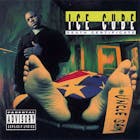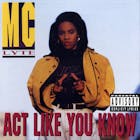features
Classic Albums: 'Don Killuminati: The 7-Day Theory' by 2Pac (Makaveli)
Classic Albums: 'Don Killuminati: The 7-Day Theory' by 2Pac (Makaveli)
Published Fri, November 5, 2021 at 3:00 PM EDT

I ain’t a killer but don’t push me…”

We prolly in hell already, our dumb asses not knowin’/Everybody kissin’ ass to go to Heaven ain’t goin/I put my soul on it, I’m fightin’ devil niggas daily/Plus the media be crucifyin’ brothers severely…”

Still bullshittin’, niggas in Jerusalem waitin’ for signs/God comin’ She just takin’ her time… Brothas gettin’ shot, comin’ back resurrected/It’s just that raw shit nigga, check it…”

Currency means nothin' if you still ain't free/money breeds jealousy, take the game from me/I hope for better days, trouble comes naturally/Runnin' from authorities 'til they capture me/and my aim is to spread mo' smiles than tears/utilize lessons learned from my childhood years…”







